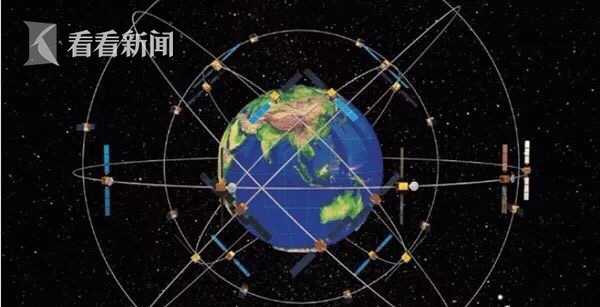
Short-term memory, long-term memory. Cognitive psychology regards memory as the process of coding, storing and extracting input information by the human brain. Memory is divided into three systems: instantaneous memory, short-term memory and long-term memory, which is based on the different ways of encoding, storing and extracting information, as well as the different length of information storage time.
What are the three memory systems: memory is also regarded as the process of the human brain encoding, storing and extracting input information, and according to the different ways of coding, storing and extracting information, as well as the different length of information storage time, memory is divided into instantaneous memory, short-term memory and long-term memory. A system.
What are the three memory systems? According to the different ways of encoding, storing and extracting information, and the different length of information storage time, memory is divided into three systems: instantaneous memory, short-term memory and long-term memory.
The three stages of memory are sensory memory, short-term memory and long-term memory. Sensory memory: Sensory memory refers to the information we receive through various sensory organs, such as vision, hearing, touch, taste and smell.
What are the three memory systems? According to the different ways of coding, storage and extraction of information, and the different length of information storage time, memory is divided into instantaneous memory, short-term memory and long-term memory. Remember the three systems.
The coding method of instantaneous memory, that is, the way instantaneous memory remembers information, is the image of external stimuli. Because the information of instantaneous memory is first registered in the sensory channel in the form of sensory images, instantaneous memory has a distinct image. The capacity of instantaneous memory is large, but the retention time is very short.
Perception is the cognitive process of giving meaning through information. ( 2) Working memory. It is the memory of processing and encoding information in the human brain within a minute. The holding time is about 5 seconds to 1 minute. Short-term memory also includes direct memory and working memory.

Weber's score), which is only applicable to medium-intensity stimuli, which is different from the Weber's score of sensory organs (2) Fechner's Law: 1860, using the differential threshold as the unit of sensation, a stimulus was measured. The difference threshold contained is believed to be the psychological intensity caused by this stimulus.
The concept of memory is the psychological process of accumulating, preserving and extracting individual experience in the mind.From storing into the brain to extracting and applying again, this complete process is collectively called memory.
Long-term memory refers to the memory maintained for more than a minute after external stimuli appear in a very short time. Features: The capacity of memory is unlimited, whether it is the type or quantity of information. Coding Semantic coding: Use words to process information and organize coding according to the meaning of the material.
Memory and memory process Definition: It is the reaction of past experience in the mind. Past experience refers to the perception of things, thinking about problems, the emotional experience caused by things, and the actions that have been carried out in the past. Function: It is the root of wisdom and the cornerstone of psychological development.
TNT Sports-APP, download it now, new users will receive a novice gift pack.
Short-term memory, long-term memory. Cognitive psychology regards memory as the process of coding, storing and extracting input information by the human brain. Memory is divided into three systems: instantaneous memory, short-term memory and long-term memory, which is based on the different ways of encoding, storing and extracting information, as well as the different length of information storage time.
What are the three memory systems: memory is also regarded as the process of the human brain encoding, storing and extracting input information, and according to the different ways of coding, storing and extracting information, as well as the different length of information storage time, memory is divided into instantaneous memory, short-term memory and long-term memory. A system.
What are the three memory systems? According to the different ways of encoding, storing and extracting information, and the different length of information storage time, memory is divided into three systems: instantaneous memory, short-term memory and long-term memory.
The three stages of memory are sensory memory, short-term memory and long-term memory. Sensory memory: Sensory memory refers to the information we receive through various sensory organs, such as vision, hearing, touch, taste and smell.
What are the three memory systems? According to the different ways of coding, storage and extraction of information, and the different length of information storage time, memory is divided into instantaneous memory, short-term memory and long-term memory. Remember the three systems.
The coding method of instantaneous memory, that is, the way instantaneous memory remembers information, is the image of external stimuli. Because the information of instantaneous memory is first registered in the sensory channel in the form of sensory images, instantaneous memory has a distinct image. The capacity of instantaneous memory is large, but the retention time is very short.
Perception is the cognitive process of giving meaning through information. ( 2) Working memory. It is the memory of processing and encoding information in the human brain within a minute. The holding time is about 5 seconds to 1 minute. Short-term memory also includes direct memory and working memory.

Weber's score), which is only applicable to medium-intensity stimuli, which is different from the Weber's score of sensory organs (2) Fechner's Law: 1860, using the differential threshold as the unit of sensation, a stimulus was measured. The difference threshold contained is believed to be the psychological intensity caused by this stimulus.
The concept of memory is the psychological process of accumulating, preserving and extracting individual experience in the mind.From storing into the brain to extracting and applying again, this complete process is collectively called memory.
Long-term memory refers to the memory maintained for more than a minute after external stimuli appear in a very short time. Features: The capacity of memory is unlimited, whether it is the type or quantity of information. Coding Semantic coding: Use words to process information and organize coding according to the meaning of the material.
Memory and memory process Definition: It is the reaction of past experience in the mind. Past experience refers to the perception of things, thinking about problems, the emotional experience caused by things, and the actions that have been carried out in the past. Function: It is the root of wisdom and the cornerstone of psychological development.
 Champions League
Champions League
468.73MB
Check Hearthstone arena
Hearthstone arena
255.17MB
Check Hearthstone Wild Decks
Hearthstone Wild Decks
181.18MB
Check UEFA EURO
UEFA EURO
561.32MB
Check Casino free 100 no deposit
Casino free 100 no deposit
365.34MB
Check UEFA EURO
UEFA EURO
971.22MB
Check UEFA Champions League standings
UEFA Champions League standings
479.87MB
Check UEFA Champions League live
UEFA Champions League live
124.65MB
Check Hearthstone arena class win rates reddit
Hearthstone arena class win rates reddit
263.91MB
Check Hearthstone deck
Hearthstone deck
245.67MB
Check 100 free bonus casino no deposit GCash
100 free bonus casino no deposit GCash
773.92MB
Check UEFA Champions League live streaming free
UEFA Champions League live streaming free
424.48MB
Check UEFA EURO
UEFA EURO
992.29MB
Check Casino Plus
Casino Plus
812.77MB
Check 100 free bonus casino no deposit GCash
100 free bonus casino no deposit GCash
217.39MB
Check App to watch Champions League live free
App to watch Champions League live free
759.46MB
Check UEFA Europa League
UEFA Europa League
541.56MB
Check Hearthstone deck
Hearthstone deck
236.46MB
Check UEFA Champions League standings
UEFA Champions League standings
163.62MB
Check Casino Plus app
Casino Plus app
725.39MB
Check Casino free 100 no deposit
Casino free 100 no deposit
187.39MB
Check bingo plus update today Philippines
bingo plus update today Philippines
742.43MB
Check DigiPlus fair value
DigiPlus fair value
996.64MB
Check Hearthstone arena class win rates reddit
Hearthstone arena class win rates reddit
811.76MB
Check casino plus free 100
casino plus free 100
116.45MB
Check UEFA Champions League live
UEFA Champions League live
783.83MB
Check TNT Sports
TNT Sports
691.36MB
Check DigiPlus stock
DigiPlus stock
897.19MB
Check Hearthstone deck
Hearthstone deck
793.79MB
Check Hearthstone arena deck Builder
Hearthstone arena deck Builder
278.45MB
Check Casino free 100 no deposit
Casino free 100 no deposit
523.63MB
Check UEFA live free
UEFA live free
115.49MB
Check Free sports events uefa champions league app android
Free sports events uefa champions league app android
515.81MB
Check Casino Plus login register
Casino Plus login register
377.55MB
Check 100 free bonus casino no deposit GCash
100 free bonus casino no deposit GCash
712.17MB
Check bingo plus update today
bingo plus update today
144.17MB
Check
Scan to install
TNT Sports to discover more
Netizen comments More
1137 bingo plus update today Philippines
2025-01-10 10:55 recommend
538 Hearthstone deck
2025-01-10 10:19 recommend
1608 DigiPlus Philippine
2025-01-10 09:59 recommend
2015 UEFA Champions League live streaming free
2025-01-10 09:12 recommend
2870 UEFA Champions League
2025-01-10 08:52 recommend